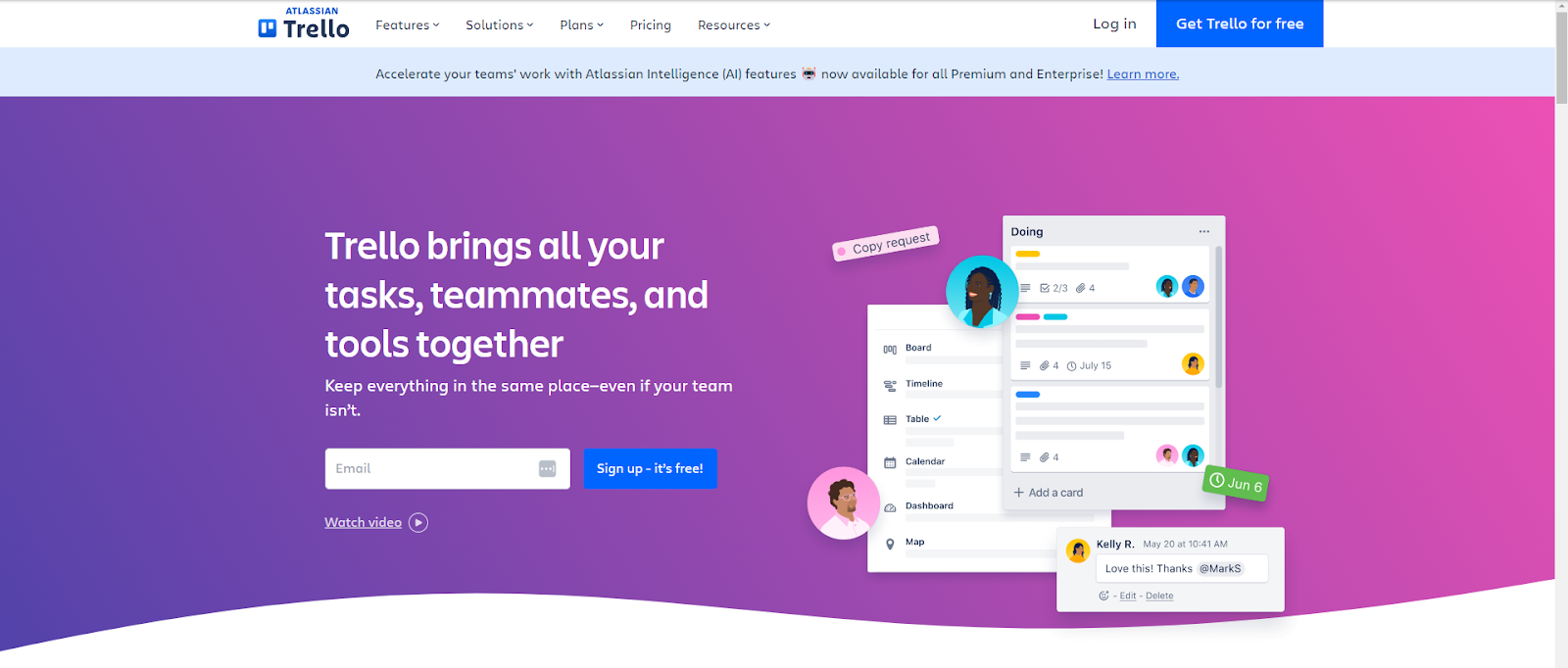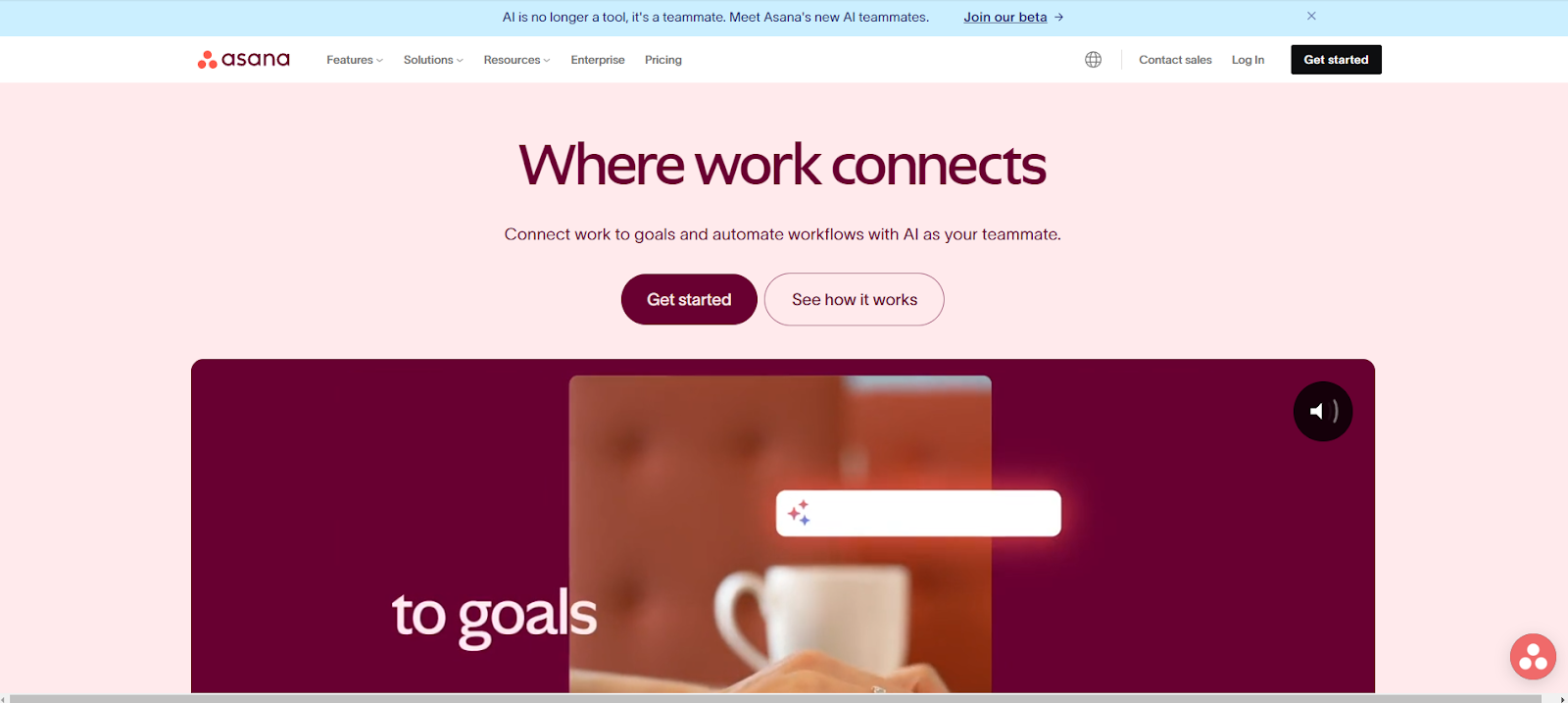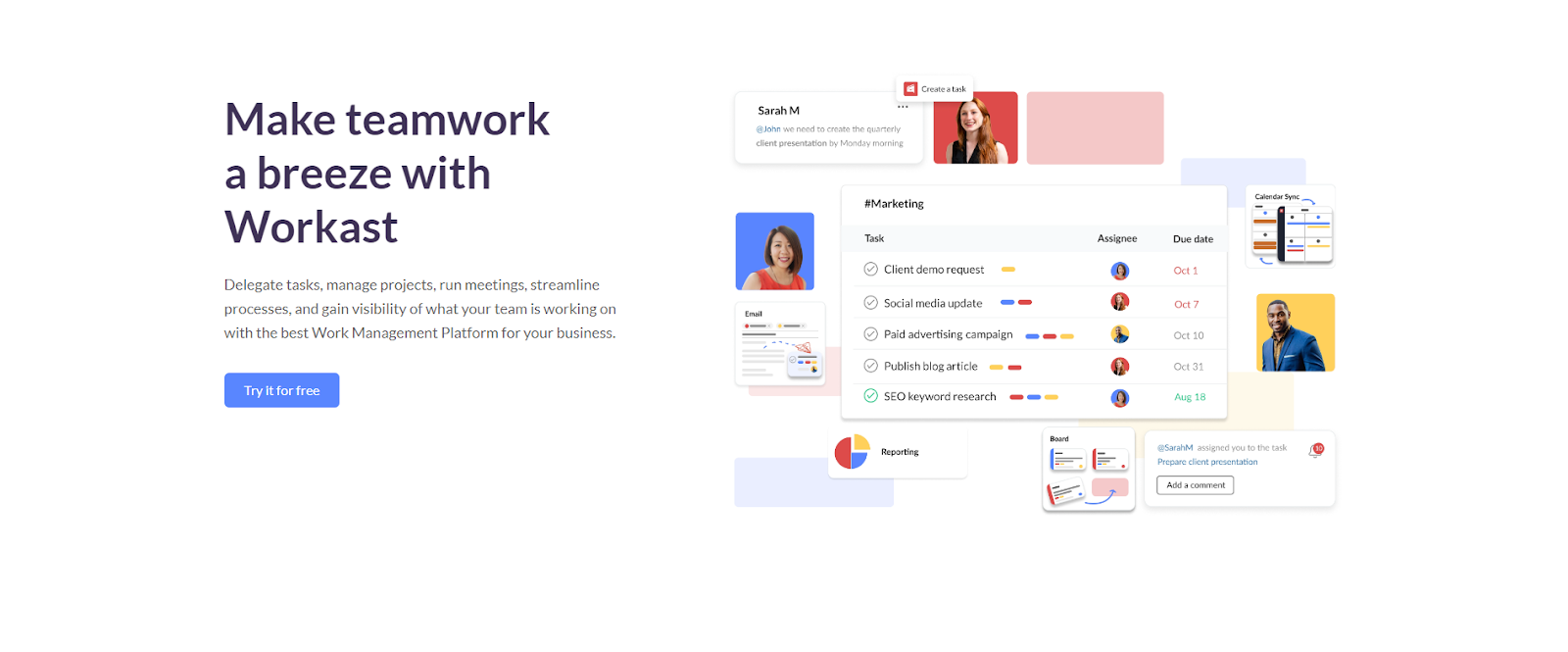Coordinating Open Houses And Property Showings With Project Management Software
ByJulian Gette
Workast publisher

Workast publisher
Coordination is the first step for successful open houses and property showings in the real estate market.
Proper coordination ensures that each event runs smoothly, maximizes exposure to potential buyers, and ultimately enhances the chances of selling properties quickly and efficiently.
Effective coordination involves scheduling, communication, and preparation. Scheduling open houses at optimal times and avoiding overlaps with other events is paramount.
Proper communication among real estate agents, sellers, and potential buyers ensures that everyone is informed and on the same page.
Meticulous preparation of properties, including staging, cleaning, and organizing, creates an inviting atmosphere that appeals to prospective buyers.
Leveraging technology such as project management software, real estate professionals can streamline these processes. These tools help in organizing schedules, managing tasks, and facilitating communication, making the entire process more efficient and effective.
Rental property management undergoes continuous evolution with the integration of AI solutions, extending to niche markets like tiny homes for sale Hawaii, where specialized coordination is essential due to unique zoning and property considerations.
According to Darren Robertson, a Northern Virginia realtor, successfully selling your home involves several key steps that require careful planning and execution.
From selecting the right real estate agent to organizing open houses and property showings, every detail counts. We got together a couple of points to help you through this process.
Choosing a dedicated real estate agency is integral to ensure a smooth and successful home-selling experience. Consider these steps to help you find the perfect match:
Gather Referrals: Start by asking friends, family, and colleagues for recommendations. Look for agents who have recently sold properties in your area, as their local knowledge will be invaluable.
Check Credentials And Experience: Ensure the agent is licensed and has a solid track record. Ideally, you want someone with at least five years of experience in selling homes. An experienced agent will have a deeper understanding of the market and effective selling strategies.
Interview Multiple Agents: Interview at least three agents to compare their approaches. Ask about their marketing plans, communication style, and how they plan to handle potential challenges. Look for agents who are responsive, knowledgeable, and have a proven success rate in selling homes similar to yours.
Evaluate Their Marketing Tools: A good agent should use a mix of online and offline marketing tools. They should be active on social media, have a professional website, and use high-quality photography and staging to showcase your home. They should also provide transparent and detailed real estate marketing plans tailored to your property’s unique selling points.
Open houses are a great way to attract potential buyers and create buzz around your property.
Schedule Strategically: Plan your open houses during times when potential buyers are most likely to be available, such as weekends or late afternoons. Avoid scheduling conflicts with other major local events.
Prepare Your Home: Ensure your home is clean, well-maintained, and staged properly. This includes decluttering, making necessary repairs, and adding fresh touches like flowers or a new coat of paint. Create an inviting atmosphere with pleasant scents and soft music.
Promote The Event: Use a mix of online and offline marketing to promote your open house. This includes listing it on real estate websites, sharing it on social media, and distributing flyers in your neighborhood. Make sure your real estate agent is also promoting the event through their network.
Engage Visitors: Provide informational packets about the property, including details about the neighborhood, schools, and local amenities. Be available to answer questions but also give visitors space to explore on their own. Follow up with attendees afterward to gauge their interest and gather feedback.
Property showings allow potential buyers to explore your home in more detail.
Schedule Flexibly: Be as flexible as possible with showing times to accommodate potential buyers’ schedules. This may include evenings and weekends.
Maintain A Ready State: Keep your home in a state of readiness for last-minute showings. This means keeping it clean and tidy at all times, with minimal personal items on display.
Provide Clear Instructions: Make sure your real estate agent provides clear instructions for accessing the property. This includes any security codes, pet arrangements, and specific areas to highlight during the showing.
Collect Feedback: After each showing, have your agent collect feedback from the potential buyers. This can provide valuable insights into how your home is perceived and what improvements might be needed to attract offers.
Use Technology: Leverage digital tools to streamline the scheduling and feedback process. Many real estate platforms offer showing management software that can help you coordinate appointments and track interactions with potential buyers
Effective organization is key to the success of open houses and property showings.
Leveraging project management tools can streamline these processes, ensuring smooth operations and enhanced coordination.
Choosing the appropriate project management tool is the first step. You’ll find some top contenders and their unique features:
1. Trello: Trello uses a card and board system to help teams manage tasks visually. It allows you to create boards for each property and cards for tasks such as scheduling open houses, managing client communication, and tracking follow-ups. Trello’s strength lies in its simplicity and flexibility, making it easy for real estate teams to adapt it to their specific needs. The visual interface of Trello makes it intuitive to see what tasks need to be done and who is responsible for them.
2. Asana: Asana provides a well rounded platform for task management and team collaboration. It supports various views, including list, board, and calendar views, which help in visualizing the schedule for open houses and property showings. Asana also includes features like project templates, task dependencies, and automated reminders, which are particularly useful for ensuring no detail is overlooked in the preparation and execution of real estate events. The workload view in Asana helps ensure that no team member is overwhelmed, balancing the tasks effectively.
3. Workast: Workast is an excellent platform for managing multiple projects simultaneously, especially for real estate teams. Known for its user-friendly interface and robust task management features, Workast allows you to create and organize tasks effortlessly. With its seamless integration with Slack, you can receive real-time updates and collaborate with your team without switching platforms. Workast's powerful automation capabilities can streamline repetitive tasks such as scheduling reminders for property showings or updating team members about new leads.Its integration with various other tools enhances its versatility, making Workast a smart choice for real estate professionals.
Organizing open houses involves multiple steps, from preparation to execution. Let’s take a look at how project management tools can help:
Scheduling And Planning: Use the calendar and task management features to schedule open houses at optimal times. Tools like Trello and Asana allow you to set deadlines and reminders, ensuring all preparations are completed on time.
Marketing And Promotion: Project management tools can help manage marketing tasks by assigning specific responsibilities to team members. For instance, creating and distributing promotional materials, updating online listings, and coordinating social media posts can be tracked and managed within these platforms.
Visitor Management: Track RSVPs and manage visitor lists using the task cards or forms within your chosen tool. This ensures you have an accurate count of attendees and can prepare accordingly.
Property showings require meticulous planning and coordination. Take a look at some tips to streamline the process:
Task Assignments: Assign tasks such as contacting potential buyers, setting up the property, and follow-ups to different team members. Tools like Wrike and Asana allow you to track the progress of these tasks in real time, ensuring accountability and timely completion (Wrike).
Feedback Collection: After each showing, use forms or task cards to collect feedback from attendees. This information can be vital for understanding buyer preferences and making necessary adjustments to the property or the selling strategy.
Coordination With Stakeholders: Use the collaboration features of these tools to keep all stakeholders, including sellers and agents, informed about the schedule and any changes. Real-time updates and notifications ensure everyone is on the same page.
Project management tools are necessary for organizing open houses and property showings, providing real estate professionals with the ability to streamline operations, enhance coordination, and ensure that no detail is overlooked.
By leveraging tools such as Trello, Asana, and Monday.com, teams can efficiently manage tasks, schedules, and communications.
Ultimately, these technologies not only simplify the process but also improve the overall experience for both sellers and potential buyers, ensuring successful and well-coordinated events.
Integrating these tools can significantly reduce the administrative burden, allowing agents to focus more on client engagement and property promotion.




